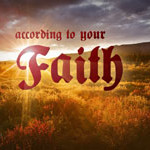We run our website the way we wished the whole internet worked: we provide high quality original content with no ads. We are funded solely by your direct support. Please consider supporting this project.

The Good News That’s Really “Good”
Often we view our relationship with God in terms of a legal contract. For instance, people often ask questions about salvation in this way. They see God as the judge, we are defendants, and salvation is about staying out of prison. With this perspective, questions about salvation and the Gospel—which means “good news”—are about the specific terms of a contract between God and us that allow us to remain acquitted and thereby stay out of prison.
When our relationship with God gets framed in terms of a legal contract, people are inclined to treat the Bible like a confusing litigation manual, the purpose of which is to resolve technical theological disputes and clarify ambiguities surrounding the terms of our contractual acquittal before God. All of this presupposes a picture of God as a judge who leverages people’s eternal destinies on how well they can litigate theological disputes or at least how lucky they were to align themselves with a competent expert (a pastor/teach) who correctly interprets this legal manual.
Is this the “good news” Jesus and his earliest followers were so excited about proclaiming?
Not by a million light years! God isn’t interested in entering into a legal contract with us; he wants a profoundly interpersonal, covenantal relationship with us that is characterized by honesty, trust, and faithfulness. Along the same lines, salvation isn’t primarily about receiving an acquittal so we can avoid prison when we die. It’s about participating in the abundant life and ecstatic love of the Triune God, and doing so now, in this life.
If we understand it in biblical terms, faith isn’t primarily about our beliefs—as if God were an academic who was obsessive about whether you arrive at the right intellectual conclusions. Even less is faith about engaging in psychological gimmickry as you try to suppress doubt to convince yourself your beliefs are the right ones so that you can feel accepted, worthwhile, and secure before God.
Rather, faith is about trusting in the beautiful character of Christ, about being transformed from the inside out by the power of his unending love, and about learning how to live in the power of the Spirit, as a trustworthy partner who increasingly reflects his love and his will “on earth as it is in heaven.”
This is the real “good news.”
—Adapted from Benefit of the Doubt, pages 118-121
Image by Jordan McQueen
Related Reading

What Does ‘Your Faith Has Healed You’ Mean? (podcast)
Greg discusses faith, doubt, and healings. Episode 486 http://traffic.libsyn.com/askgregboyd/Episode_0486.mp3

Speaking of Doubt
Xava du via Compfight As long as we’re on the topic of faith and doubt, here’s an excellent piece by Richard Beck on The Gifts and Benefits of Doubt. Are you struggling with doubt and feeling like a spiritual loser for it? We think you’ll appreciate Beck’s insight on this. From the article: The assumption…

The Heresy of “Just War”
Since the time when the Jesus-looking kingdom movement was transformed into the Caesar-looking “militant and triumphant” Church, there has been a tradition of Christians by-passing the enemy-loving, non-violent teachings of the NT and instead appealing to the precedent of divinely-sanctioned nationalism and violence in the OT whenever they felt the need to justify engaging in…

According to Your Faith
In his sermon from this last weekend, Greg deals with Scriptures that have created some misunderstandings regarding the nature of faith. He shows how we can replace the gimmickry we normally associate with faith with something much more beautiful and lasting. You can download the sermon here. How have Greg’s thoughts on faith impacted the…

Reading the Bible “by Faith”
The cruciform approach to reading the Bible—and specifically the culturally-conditioned and sin-stained portraits of God—requires faith on the part of the reader, which I argue in Crucifixion of the Warrior God. On one level we can discern by faith that often times God broke through the limitations and sin of the ancient authors, for we…

Doubt as a Companion to Faith
A true and living faith is never a destination; it’s a journey. And to move forward on this journey we need doubt. Faith is not based on certainty. Think of it this way. We often cling to certainty-seeking faith like one might a map as if the map itself is actually the territory. But our…
